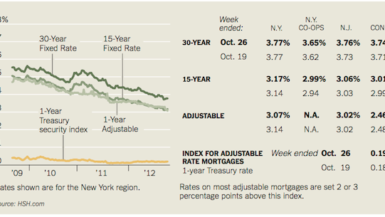Introduction
Construction law is a crucial aspect of the legal system that governs the rules and regulations involved in the construction industry. It encompasses a wide range of legal issues and disputes that can arise during the planning, design, and execution of construction projects. This article aims to provide a comprehensive guide to construction law, exploring its key concepts, legal frameworks, and common challenges faced by construction professionals.
Table of Contents
- Understanding Construction Law
- Definition and Scope
- Importance of Construction Law
- Key Legal Concepts in Construction Law
- Contracts and Agreements
- Building Codes and Regulations
- Zoning and Land Use
- Roles and Responsibilities of Construction Professionals
- Architects and Engineers
- Contractors and Subcontractors
- Project Owners and Developers
- Legal Framework for Construction Projects
- Pre-Construction Phase
- Construction Phase
- Post-Construction Phase
- Common Legal Issues in Construction
- Construction Defects and Liability
- Delay and Disruption Claims
- Payment Disputes
- Resolving Construction Disputes
- Negotiation and Mediation
- Arbitration
- Litigation
- Environmental and Sustainability Considerations in Construction Law
- Green Building Standards
- Environmental Impact Assessments
- Sustainable Construction Practices
- International Construction Law
- Cross-Border Construction Contracts
- Jurisdictional Challenges
- Enforcement of Foreign Judgments
- Insurance and Risk Management in Construction
- Types of Construction Insurance
- Risk Allocation and Mitigation
- Emerging Trends in Construction Law
- Technology and Construction
- BIM (Building Information Modeling)
- Modular Construction
Understanding Construction Law
Construction law refers to the body of legal principles and regulations that govern the construction industry. It encompasses a wide range of legal issues, from contract negotiations to resolving disputes, to ensure smooth and lawful construction processes. This legal framework plays a vital role in ensuring the safety, quality, and timely completion of construction projects.
Key Legal Concepts in Construction Law
Contracts and Agreements
Construction projects rely heavily on contracts and agreements, which establish the rights and obligations of the parties involved. Common types of construction contracts include fixed-price contracts, cost-plus contracts, and time and material contracts. These legal agreements safeguard the interests of all parties and provide a basis for resolving disputes if they arise.
Building Codes and Regulations
Building codes and regulations dictate the minimum standards for construction projects. They cover aspects such as structural integrity, fire safety, accessibility, and environmental sustainability. Complying with these codes is essential for obtaining permits and approvals for construction projects.
Zoning and Land Use
Zoning laws regulate how land can be used and developed. They designate specific areas for residential, commercial, industrial, or recreational purposes. Construction professionals must navigate these zoning restrictions to ensure their projects are in compliance with local regulations.
Roles and Responsibilities of Construction Professionals
Architects and Engineers
Architects and engineers are responsible for designing the construction project. They must ensure that their designs comply with building codes and regulations, meet the client’s requirements, and address any environmental or sustainability concerns.
Contractors and Subcontractors
Contractors and subcontractors are responsible for executing the construction project based on the designs provided. They handle the construction process, manage the workforce, and procure necessary materials.
Project Owners and Developers
Project owners and developers initiate and finance construction projects. They have the vision for the project and collaborate with architects, engineers, and contractors to bring it to fruition.
Legal Framework for Construction Projects
Pre-Construction Phase
The pre-construction phase involves activities such as project planning, obtaining permits, and securing financing. It is essential to address legal issues, draft contracts, and clarify roles during this phase to avoid complications later.
Construction Phase
The construction phase is the actual execution of the project. It is crucial to adhere to the contract terms, maintain safety standards, and address any unforeseen legal challenges that may arise during construction.
Post-Construction Phase
The post-construction phase involves project handover and addressing any defects or issues that may arise after completion. Construction professionals must ensure compliance with warranty agreements and any outstanding legal matters.
Common Legal Issues in Construction
Construction Defects and Liability
Construction defects can lead to safety hazards, structural failures, and performance issues. Determining liability and resolving construction defect claims require legal expertise.
Delay and Disruption Claims
Delays and disruptions can significantly impact construction projects. Resolving claims related to project delays involves assessing responsibilities, mitigating damages, and negotiating fair compensations.
Payment Disputes
Payment disputes often arise between contractors, subcontractors, and project owners. Construction law provides mechanisms for resolving such disputes and ensuring fair and timely payments.
Resolving Construction Disputes
Negotiation and Mediation
Negotiation and mediation are alternative dispute resolution methods that allow parties to discuss issues and reach mutually acceptable solutions without going to court.
Arbitration
Arbitration is a more formal dispute resolution process where an arbitrator makes a binding decision based on the evidence presented by the parties involved.
Litigation
Litigation involves taking the dispute to court, where a judge or jury decides the outcome. Litigation is often the last resort when other methods fail.
Environmental and Sustainability Considerations in Construction Law
Green Building Standards
Green building standards promote environmentally friendly construction practices, aiming to minimize the environmental impact of buildings.
Environmental Impact Assessments
Environmental impact assessments evaluate the potential environmental effects of a construction project and suggest measures to mitigate negative impacts.
Sustainable Construction Practices
Sustainable construction practices focus on resource conservation, energy efficiency, and waste reduction during construction.
International Construction Law
Cross-Border Construction Contracts
Cross-border construction contracts involve unique legal challenges, such as jurisdictional issues and differences in laws and regulations.
Jurisdictional Challenges
Determining the appropriate jurisdiction for international construction disputes can be complex and requires expertise in international law.
Enforcement of Foreign Judgments
Enforcing foreign judgments in construction disputes may involve navigating legal processes in different countries.
Insurance and Risk Management in Construction
Types of Construction Insurance
Construction insurance policies, such as builder’s risk insurance and professional liability insurance, protect construction professionals from financial losses.
Risk Allocation and Mitigation
Construction professionals must allocate and manage risks effectively to ensure project success and avoid legal complications.
Emerging Trends in Construction Law
Technology and Construction
Advancements in technology, such as drones, AI, and 3D printing, are transforming the construction industry and raising legal implications.
BIM (Building Information Modeling)
BIM technology enhances collaboration, efficiency, and accuracy in construction projects, leading to new legal considerations.
Modular Construction
Modular construction methods are gaining popularity, raising novel legal questions related to liability and quality control.
Conclusion
Construction law plays a fundamental role in ensuring the success and legality of construction projects. By understanding key legal concepts, resolving disputes efficiently, and embracing emerging trends, construction professionals can navigate the legal complexities of the industry effectively. Complying with building codes, regulations, and sustainable practices is essential for promoting safety, quality, and environmental responsibility in construction projects.





Leave a reply